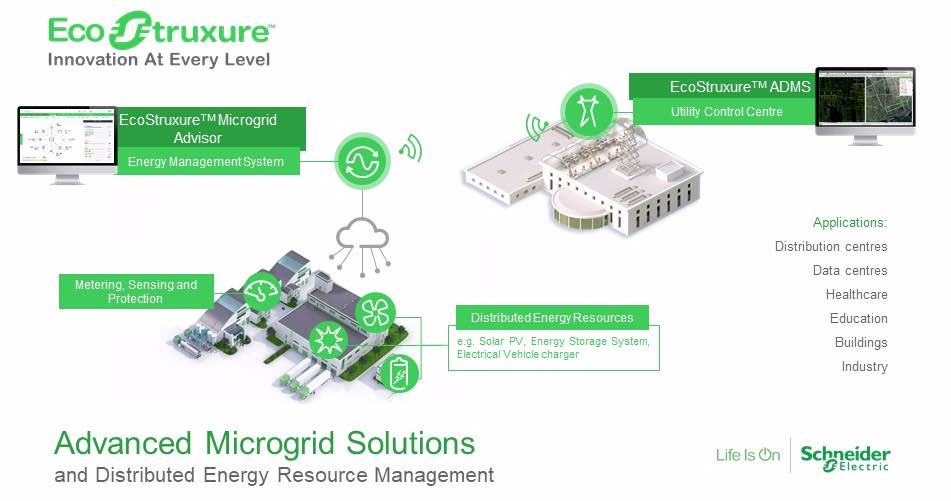PRESS RELEASE
Schneider Electric, the global energy management specialist, in partnership with Australian renewable energy engineering company Planet Ark Power, has been awarded a $1.95m grant by the State Government to support the delivery of a secure, sustainable and affordable energy supply to South Australia.

The grant will help build a $13.9 million solar and battery pilot project at a major distribution centre in Adelaide’s north. The first project of its kind in Australia, it combines solar power and battery technology optimised by a Schneider Electric led microgrid management system integrated with an Advanced Distribution Management System to deliver more secure and reliable energy back to the grid.
Gareth O’Reilly, Zone President and Managing Director of Schneider Electric Australia & New Zealand, said that this is a significant milestone for Australia’s renewable energy future.
“The South Australian Government leads the way with its vision for renewable energy generation, and this project is a significant stepping stone towards a future where the whole of Australia has reliable and affordable sources of renewable energy.
“Nationwide, there is potential for 10,000MW or more of demand side response and load shifting, equivalent to five Liddell power stations, and 20 per cent energy efficiency improvements across the National Electricity Market.
“At Schneider Electric we believe demand side response and energy efficiency should be explored as a first priority to make energy for all Australians safer, more reliable, more sustainable and more affordable. Full adoption of demand side response and load shifting solutions will reduce the need to open new large-scale power stations. It will also provide the network with the flexibility to allow high levels of renewable penetration into the system,” concludes Mr O’Reilly.
The grant is one of four grants from this round and part of the SA State Government’s $150 million Renewable Technology Fund designed to support projects in four categories – renewable generation; bulk energy storage; bioenergy; and hydrogen infrastructure. This grant comes as recognition for Schneider Electric and Planet Ark Power that their current and proposed future work is contributing to a more secure, sustainable and affordable energy future.
Jonathan Ruddick, General Manager at Planet Ark Power said: “Planet Ark Power is proud to be partnering with both the South Australian Government and Schneider Electric on this exciting initiative. This microgrid project allows the demonstration of the technology that will power our future energy supply both locally and globally.
The microgrid harnesses the full potential of renewable energy by dealing with the intermittent nature of solar. This project is an example of South Australian leadership in building a stable and affordable energy future.”
The project will include a grid-connected microgrid with 2.9MWh of smart battery storage, demand management, new network integration technology and up to 6MW of rooftop solar power.
Central to this project will be the integration of Schneider Electric’s market leading EcoStruxure Platforms, including its Advanced Distribution Management System and Microgrid Advisor, which will optimise the site’s solar PV and battery storage. Embedding solar generation and storage with microgrid control, will improve the grid’s resilience and the energy security of the site.
Work is expected to commence early in 2018.










